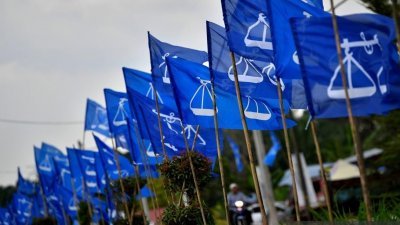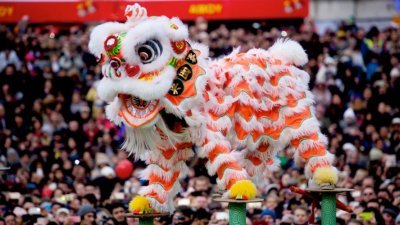美国国务卿安东尼布林肯本月18日访问北京显然是在向全球媒体表明,美国正在努力缓和美中两国紧张局势。
在离开华盛顿特区前,布林肯强调了美中两国需建立和保持更好沟通渠道的重要性。他对记者说,美国要确保与中国的竞争不会因可避免的误解,而演变成冲突。
可是谁该为美中关系恶化并推向冲突负责,这是毋庸置疑的。
自特朗普上台至如今拜登执政下,为确保美国在世界上的主导地位不受威胁,美国打压中国的三管齐下战略日益升级。
首先,是源自冷战时代的反共战略,重点是美军对中国的围堵和对抗。今天,由于美军海外军事行动带来的伤亡不会得到美国境内的支持,以及海外的庞大军费开支对经济带来冲击,美国正试图在西方、日本、韩国和菲律宾招募“代理人”与中国对抗。
第二,就是不断藉台湾、中国人权、香港、新疆、南中国海,甚至俄罗斯对乌克兰的战争等课题,对中国进行妖魔化。布林肯此次访中之行,应该避免在这些问题上推波助澜,否则他将无法与中国取得任何进展。
此外,美国及其盟友也会善用媒体炒作的新闻——彭帅事件、法轮功、北京空气质量、南中国海、致命事故、中国火箭、中国饮食习惯、中国网红死亡案件──以及任何可用来产生反中和反华情绪之事,以向世界形塑中国负面形象。
第三个战略——也许是最危险和最重要的——就是经济方面的,包括以纠正侵犯人权行为为幌子对中国实施制裁,迫使中国遵守国际规则和标准,防止中国对美国盟友采取所谓的胁迫行动等。
事实上,从美国对中国产品征收关税,以及最近对华为、中兴、Tiktok、新疆产品等采取的行动,可以清楚地看出,这些制裁是为了限制中国产品参与市场竞争并赢得市场份额,尤其是在高科技领域。
小题:谁摧毁台积电
今天,美国领导人计划对中国实施的经济制裁达到高峰。例如,美国空军空战学院教授贾里德麦金尼(Jared M. McKinney) 就呼吁一旦台海两岸发生战争时,台积电应有自毁机制。
台积电是全球最大的芯片制造商,占有全球市场份额54%。在过去的五年里,台积电是全球晶圆芯片代工的领导者。在这之前,台积电董事长坚称,没有理由为两岸的冲突担心。
台积电董事长刘德音在2021年时宣称:“关于中国攻台,我可以告诉你,每个人都希望台湾海峡和平。”出生于台北、在美国伯克利大学接受教育,之后曾在贝尔实验室工作的刘德音认为,“台湾海峡的和平‘对每个国家都有好处’。 鉴于世界对台湾半导体供应链的依赖,没有人会想破坏它。”
可是,刘德音显然是错估了,虽然他不承认,但他是知道的。
美国已在运用其霸凌和经济胁迫力量,阻止台湾、荷兰、韩国、日本和美国公司销售先进的存储芯片和其他设备给中国。
这只是美国正在进行的芯片战争之开场。在为煽动战争情绪的日本媒体巨头日经亚洲撰写评论文章中,麦金尼强调了台湾半导体行业的重要性及其遭中国兼并的脆弱性。
对民主党议员赛斯·莫顿(Seth Moulton)发表,在中国入侵情况下美国应该“炸毁台积电”言论,麦金尼反认为,与其威胁炸毁台积电——这种敌对行为会导致美国成为积极的交战方——台湾应该自己毁掉台积电,然后由美国帮台湾,把这些技术人员送离台。
美国著名的鹰派、前国家安全顾问奥布莱恩、现任驻台湾代表,最近获台总统蔡英文授予“特种大绶景星勋章”。奥布莱恩主张一旦中国侵台,美国应摧毁台积电以及台湾的其他芯片制造厂,并将此举与英国在法国向纳粹德国投降后,决定击沉法国海军舰队相提并论。他提出的卑鄙恶毒的提议,除了摧毁芯片制造机器外,还会导致数千万台湾人伤亡,却得到了台湾的崇高荣誉,这暴露了台湾政府的政治破产。
小题:宣扬中国威胁论
实际上,西方至今一切关于摧毁台积电的评论,都是建设在西方媒体所谓的中国即将入侵台湾报导上,而这些西方媒体报导却是依据美国消息来源。美国国会、智库和其他西方外交政策机构已经进行了多次兵棋推演,为美国与中国开战做准备。在澳洲,两家主要媒体《悉尼先驱晨报》(Sydney Morning Herald)和《时代报》(The Age)在由三个系列组成的报导中,第一篇就以“澳洲三年内与中国开战的威胁。”为题,大肆宣扬中国威胁论。
至今没有一家西方媒体报导,在美国及其盟友推动和鼓吹的“战争威胁”下,中国是如何应对的。反之,如果中国和台湾未来能达致和解与和平统一,台积电将是第一个被炸毁的目标——但这不是来自中国的威胁,而是美国。
目前,我们可以预料美国的保守派,甚至自由派、军方及其支持者将破坏任何可让中台关系朝向和平发展和最终统一的举动。他们也不会允许台积电在中国一统环境下继续运营。
一旦中台出现和解或统一苗头,几乎可以肯定台积电将遭到摧毁。这也解释了为何该公司疯狂地致力于在美国和世界其他地区建设新工厂。
林德宜《台积电何时遭摧毁?》原文:When Will TSMC Get Blown Up
US Secretary of State, Anthony Blinken, on his visit to Beijing is clearly putting on a show for the world's media that the US is making efforts to cool down exploding tensions between the two countries.
Shortly before leaving Washington DC, Blinken emphasised the importance of the US and China establishing and maintaining better lines of communication. The U.S. wants to make sure “that the competition we have with China doesn't veer into conflict” due to avoidable misunderstandings, he told reporters.
Who is responsible for the deterioration in US-China relations and pushing it into conflict is really not in doubt.
Three Prong US Strategy to Bring Down China
Since Trump came into power and now sharply escalated by Biden, the US has used a three pronged strategy to cut China down to a size it feels necessary to ensure its dominant position in the world.
The first prong is one from the cold war era against communism and focuses on US military encirclement and confrontation of China. Today because of the lack of US public support when American casualties arrive home in body bags and the US economy takes a hit from its military expenditure in distant lands, the US is engaged in recruiting proxies from the west as well as Japan, South Korea and the Philippines to fight its war against China.
The second is the ongoing campaign by picking on issues such as Taiwan, human rights in China, Hong Kong and Xinjiang, the South China Sea and even Russia’s war in Ukraine to demonise China. Blinken should avoid pushing the button on these issues or he will not get anywhere with his Chinese counterpart.
Along the way, the US and its allies have also picked up other news headlines of the day - Peng Shuai, Falun Gong, air quality in Beijing, South China Sea, fatal accidents, Chinese rockets, Chinese food habits, death of a Chinese social influencer - and whatever matter that can be used to generate anti-China and anti-Chinese sentiment to paint a negative image of China to the world.
The third prong - perhaps the most dangerous and consequential - is economic and consists of sanctions against China under the guise of correcting human rights abuses, compelling China to follow international rules and standards, preventing China from alleged coercive action against US allies, etc.
In reality as is clear from the examples of US tariffs on China products, and recent actions against Huawei, ZTE, Tiktok, Xinjiang products, etc. the sanctions are to prevent China's products from competing and winning market share especially in the high tech sectors.
Who is Planning to Blow UP TSMC
Today the economic sanctions that US leaders are planning against China are reaching a climax. Jared M. McKinney, a professor with US Air Force's Air War College, for example, has called for a self-destruct mechanism to Taiwan’s TSMC to be put in place in the event of war.
The TSMC is the biggest chipmaker in the world with a 54% global market share. For the past half-decade, TSMC has been the world’s leader in pattern chips. In the past, TSMC’s chairman has insisted that there is no reason for concern.
“As to the invasion of China, let me tell you,” he declared in 2021, “everybody wants to have a peaceful Taiwan Strait.” Taipei-born, Berkeley-educated, and Bell Labs?trained, Mark Liu has argued that peace in the Taiwan Strait “is to every country’s benefit”. Given the world’s reliance on “the semiconductor supply chain in Taiwan. No one wants to disrupt it.”
Mark Liu is wrong and he knows it though he will not say it.
Already the US is using its bullying and economic coercive power against China to block the sale of advanced memory chips and other computer equipment from Taiwan, Netherlands, South Korea, Japan and the US.
This is the opening shot in the war on chips that the US is undertaking. In his opinion piece for Nikkei Asia, the war-fanning Japanese media giant, Mckinney emphasised the significance of Taiwan’s semiconductor industry and its vulnerability to China’s takeover.
Referring to Democrat Seth Moulton’s comments that the US should “blow up the TSMC” in case of a Chinese invasion, McKinney suggested that rather than the US threaten to bomb TSMC - a hostile act that would result in the US becoming an active belligerent - Taiwan should itself destroy TSMC with the US helping Taiwan’s technicians to leave the country after the act.
Prominent US war hawk, former national security advisor Robert O’Brien and now Ambassador to Taiwan was recently conferred by President Tsai Ing-wen with the Order of Brilliant Star with Special Grand Cordon (see https://english.president.gov.tw/News/6461). He has advocated for US destruction of TSCM as well as other chipmaking fabs in Taiwan comparing such a move to Britain’s decision to sink France’s naval fleet after the country surrendered to Nazi Germany. It is revealing of the political bankrupcy of Taiwan's government that he has been accorded high honour despite his contemptible and diabolical proposal which will results in thousands of Taiwanese casualties apart from the chipmaking machines. .
End Game on TSMC
So far such comments have been made to refer to China’s so-called coming invasion of Taiwan which, according to western media accounts drawn from US sources, is supposed to take place soon. Already multiple war games have been played in US Congress, think tanks and other western foreign policy bodies to prepare the US for war with China. In Australia, two of the country’s leading media, the Sydney Morning Herald and The Age splashed the first episode in a three-part series with the headline: “Australia faces the threat of war with China within three years.”
None of western media has a story on how "China faces the threat of war" which is what the US and its allies are pushing and preparing for. Should China and Taiwan work out a future of reconciliation and peaceful reunification, TSMC will be the first target to be blown up - not by China but by the US.
For now, we can expect that conservative, and even liberal, forces in the US and their supporters will sabotage any possibility of peaceful development in China-Taiwan relations and an eventual harmonious reunification. Neither will they allow TSMC to continue operations in a unified China.
If reconciliation or reunification appears on the horizon the destruction of TSMC is almost certainly assured. This explains why the company is frantically engaged in opening up new factories in the US and other parts of the world.
要看最快最熱資訊,請來Follow我們 《東方日報》WhatsApp Channel.
.jpeg/cdf3032f380bb76e5b291e3c9d17fa74.jpeg)

















